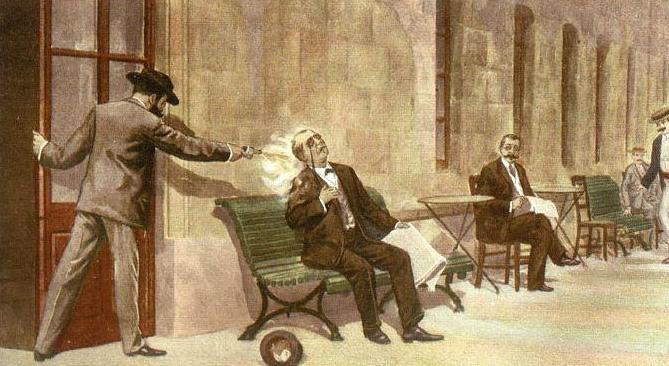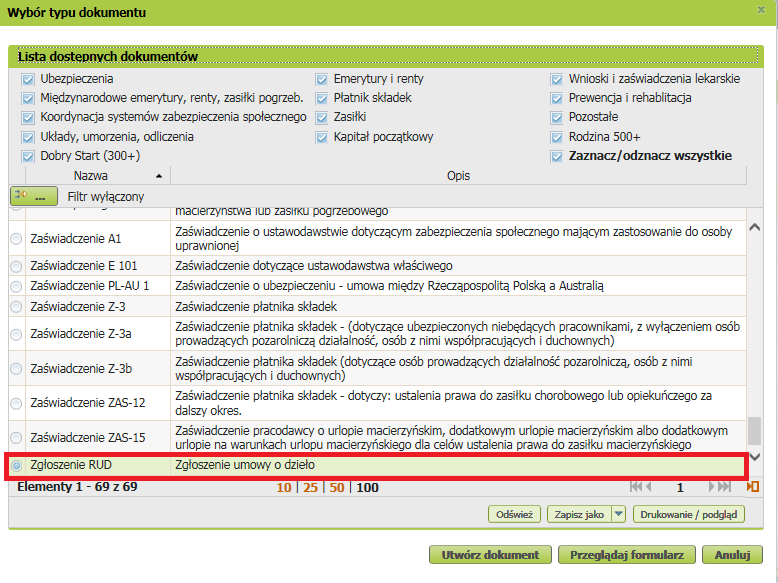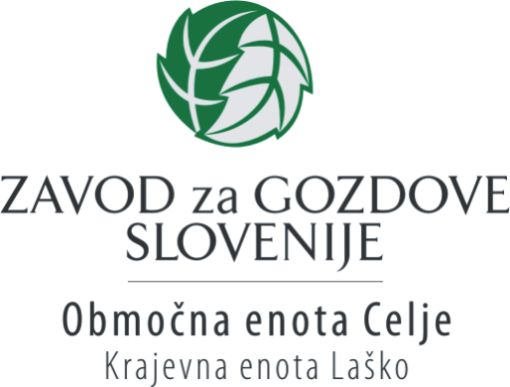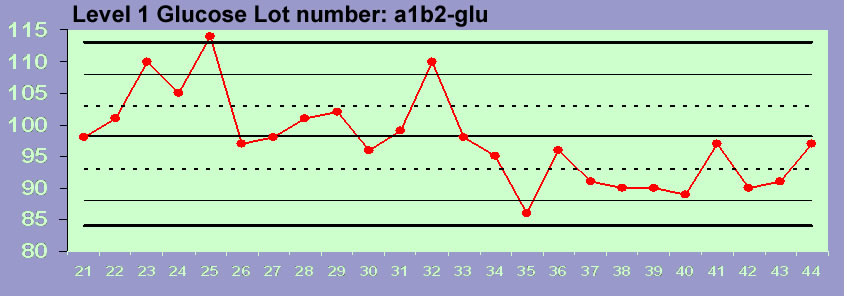PUBLICPRIVATE DIALOGUE IN AUTOMOTIVE CLUSTERS IN INDIA AND SOUTH
6 PUBLICPRIVATE PARTNERSHIPS FOR FLOOD AND ALL HAZARDS EMERGENCYMAYOR GARCETTI LAUNCHES NATION’S FIRST CITYBASED CYBER LAB PUBLICPRIVATE
PSIRU UNIVERSITY OF GREENWICH WWWPSIRUORG TERMINOLOGY OF PUBLICPRIVATE PARTNERSHIPS
PUBLICPRIVATE DIALOGUE IN AUTOMOTIVE CLUSTERS IN INDIA AND SOUTH
PUBLICPRIVATE DIALOGUE MYTH OR REALITY BY DR MURTALA S
UNIVERSITY RESEARCH AND PUBLICPRIVATE INTERACTION DOMINIQUE FORAY FRANCESCO LISSONI†‡
1

Public-Private Dialogue in Automotive Clusters
in India and South Africa
By
Natascha Weisert, Industrial Development Officer, Clusters and Business Linkages Unit, Business Investment and Technology Services Branch, UNIDO; and
Riccardo Mesiano, Program Officer, UNIDO India field office1
Presented at the Public-Private Dialogue 2010 Workshop
(Vienna, June 1-3 2010)
1- Project Background and Context
The UNIDO technical assistance projects in India and South Africa both pursue the goal of facilitating the integration of auto-component manufacturers into global value chains, but differ in scope and modalities of implementation (such as concerning the focus of project activities within the tier/supply chain structure, geographical coverage, upgrading methodology, etc.). 2
Background on each project
India-Consolidated Project on SME Development
This three-year project was launched in February 2007 and is financed by the Italian Ministry of Foreign Affairs - General Directorate for Co-operation & Development. The Development Commissioner – Ministry of Micro, Small & Medium Enterprises (DC-MSMS), Government of India, is the Indian counterpart and UNIDO the Implementing Agency. Among other clusters, the project targets two automotive component clusters in Chennai and Pune.
Having in mind the significant role played by the SMEs in contributing to employment generation, poverty reduction and wider distribution of wealth and opportunities3, the project aims at the implementation of a comprehensive and integrated programme for SME development focusing upon:
the establishment of Cooperation Agreements between Indian and the corresponding Italian clusters (Twinning Component)
the promotion of foreign direct investment & transfer of technology (Investment & Technology Promotion component)
the promotion in India of the Italian Mutual Credit Guarantee Schemes (MCGS component)
As far as the Pune automotive component cluster is concerned, the Maratha Chamber of Commerce, Industry and Agriculture (MCCIA) is the local partner association. Founded in 1934 to accelerate the industrial growth in and around Pune, MCCIA is an industry association with over 2200 members from different sectors like Automotive and Auto Ancillaries, Electronics, Agribusiness, Information Technology, Bio-Technology, Environmental Technologies, Chemicals, etc. It is one of the most active Chambers of Commerce in India catering to Pune region.
Under the Investment and Technology Promotion activities, Subcontracting and Partnership Exchange (SPX) profiling has been completed for about 250 companies in the automotive components sector: a full open source database has been made available on the www.spxindia.org website and is working as a promotional and marketing tool for the MSMEs. Training on technology promotion tools like Company Project Profiles (CPP) that is used as an introduction of the companies looking for loans, Joint Ventures or partnerships and the Computer Model for Feasibility Analysis and Reporting (COMFAR) was imparted to MCCIA and other stake holders in Pune. With the contributions from International experts, awareness was created on Supplier Development Programs aiming International Vehicle Manufacturers.
South Africa – Automotive Component Suppliers Development Programme
The automotive industry is South Africa’s leading manufacturing sector. But South African components suppliers are under continuous pressure to improve their performance or lose business to competitors in emerging economies like Brazil, China and India. To encourage the sector’s transformation into a globally competitive industry, UNIDO, the South African Department of Trade and Industry (DTI) and the Automotive Industry Development Centre (AIDC), a South African government-owned agency, are seeking to build on an existing technical assistance programme (the “Tirisano Cluster Programme”4) to support automotive component manufacturers.
The objectives of this three-year project, which was initiated in 2009 and is to be implemented in two phases, are:
to assess the Programme’s impact on operating efficiency and environmental performance at the enterprise level (benchmarking on quality and productivity enhancement as well as on environmental performance – phase I of 18 months);
based on the benchmarking undertaken, to broaden and further enhance the range of services it provides and the number of companies it serves to around 75 automotive component suppliers; and
to enable the AIDC to provide these services to the automotive and to other industrial sectors on a commercially sustainable basis without DTI support (phase II – 18 months).
Phase I is currently ongoing, comparing the relative performance of 15 South African companies participating in the cluster programme against a control group of national and international component manufacturers. Ultimately through the implementation of the two phases indicated, it is expected that this project will lead to an increase in the proportion of automotive assembly inputs sourced locally, in exports of automotive components and the growth of sustainable employment in the sector.
While these projects do not have an explicit public-private dialogue (PPD) focus or component and have not been designed in line with established PPD methodologies, their conceptualization and implementation was only rendered possible on the basis of strong collaboration between relevant public and private sector actors.
In the following, we will highlight the key elements of these partnerships that have helped or hindered the successful implementation of UNIDO technical assistance projects in India and South Africa.
2- Current PPD Structure and Situation
The public-private dialogue and partnerships within the context of these UNIDO projects draw on the participation of and collaboration among the following public and private sector actors:
India
Ministry of Micro, Small and Medium Enterprises (MSME)
Ministry of Commerce and Industry/Department of Industrial Policy and Promotion
Mharata Chamber of Commerce, Industry and Agriculture (MCCIA)
Auto Cluster in Pune
Ambattur Industrial Estate Manufacturer Association (AIEMA)
Confederation of Indian Industries (CII)
South Africa
South African Department of Trade and Industry (DTI)
Automotive Industry Development Centre (AIDC)
South African National Cleaner Production Centre
National Association of Automotive Component and Allied Manufacturers (NAACAM)
National Association of Automobile Manufacturers of South Africa (NAAMSA)
2.1 Organizational structure
Each project has a steering committee that brings together the main actors on regular basis to review and adjust projects work-plans, activities and reports. While in South Africa the Steering Committee includes representatives from the private as well as from the public sector, participation in India is restricted to the public sector and international counterparts. In other words, in India the PPD is not taking place at the highest national level, but is rather taking place at the level of support institutions and the cluster itself. More information will be provided below.
2.2 Partnership Characteristics
Generally speaking, the partnerships within which the South Africa and India projects are embedded have a number of special characteristics that are worthwhile highlighting:
National vs. Local: while the South Africa project has a national-level orientation with rollout in different locations, activities in India, including stakeholders and coordination, are happening at the local cluster level.
Competitiveness vs. Development Orientation: while the broader focus is on enhancing the competitiveness of automotive component manufacturers, the involvement of UNIDO, the Italian Government in the Indian case, and openness towards relevant civil society actors, prepares the ground for stronger consideration of key development issues, e.g. skills enhancement and inclusion of marginalized groups, employment generation, occupational health and safety, HIV-AIDS, use of natural resources, waste and pollution, etc., and seeks to raise awareness about the business case for taking these issues seriously at the enterprise, cluster, institutional, and governmental level.
Project Funding: public and private funding is provided to implement project-specific activities in both countries. In South Africa, the government is providing funding to the AIDC to provide upgrading services to the automotive industry and funds the evaluation of services provided through the AIDC, while the automotive component manufacturers actually pay (covering a certain percentage of overall cost) for the services provided by AIDC. In India, the project is receiving fund from the Government of Italy for the implementation of the technical assistance programme for the automotive companies in Pune and Chennai.
Scope of Partnership: in both projects, the PPD actually spans the entire project cycle - from the design of the project, which arose out of a clear need signalled by the private sector and responded to by the public sector, to the implementation and actual monitoring of the implementation through continuous PPD.
Policy Linkage: both projects have a policy linkage, which nevertheless differs in scope and quality. In South Africa, the evaluation of the support services currently being provided (which is funded by the government) will yield a clear indication as to whether the services should continue to be provided/supported in their current form and whether the pricing (i.e. the cost to the private sector) is adequate. Beyond that, the recommendations coming out of the evaluation will be fed back into the wider industrial policy framework for the consideration of specific adjustments and broader reform measures. In India, the current project’s objective is not so much to yield specific policy recommendations at the national level, but to make greater and more effective use of public investments into the support infrastructure at the cluster level, which is achieved by connecting relevant stakeholders as the Auto cluster, the MCCIA, the 1st Tier companies and the other MSMEs and in Chennai AIEMA, CII, the 1st Tier companies and the other MSMEs.
3- Results Achieved
Through the existing partnerships, the following results have been achieved:
3.1. India
Already at the design stage, the project benefitted from a joint effort in defining the objectives and scope (tier level, local partners) of the technical assistance to be provided. The selection process for the participating companies was also undertaken based on consensus of the different stakeholders and thus did not lead to any tensions among the supplier base.
A key result of the partnership was the establishment of the Pune Auto-Cluster, which does not only represent the interests of the private sector (OEMs, component manufacturers), but also makes best possible use of infrastructure invested into and made available by the local government (through the Indian Industrial Infrastructure Upgrading Scheme).
3.2. South Africa
In the context of the UNIDO technical assistance programme, the South African Government is providing funds to the AIDC to provide training upgrading services to local automotive component manufacturers. After several years of implementation of this programme and in order to determine whether the services provided are cutting edge and worth taxpayers’ money, it was decided to implement a benchmarking scheme to evaluate the performance of companies participating in the programme against a national and international control group. Based on the results (expected end-2010), the programme will continue to receive funding in the way it existed before or may require adjustments to ensure greater impact and value for money.
Moreover, inputs from the upgrading programme on the current situation of South African component manufacturers (demands, needs, anticipated challenges, linkages with Tier 1 and Original Equipment Manufacturers) are finding their way into industrial policy and strategy frameworks (such as the National industrial Policy Framework (NPIF) or the Industrial Policy Action Plan (IPAP)) and are well placed to serve as a basis for similar support programmes for other sectors.
4- Challenges and Way Forward
UNIDO PPD activities in India in the auto sector are facing various challenges, such as the effective participation of tier 2 and 3 companies to the SDP training and audit activities for which a financial contribution of 1500 USD per company is required. The financial commitment from the companies has been conceived as a tangible sign of their commitment. The worldwide crisis of the automotive industry is definitely not encouraging any further financial commitment from the companies, but betting today on quality up-gradation and certification by the biggest companies will bring concrete benefits tomorrow. For this reason the project has started a promotional campaign to bring interested and locally integrated companies on board.
As to the sustainability of the activities implemented in India, the project will be phased out at the end of 2010 and for this reason UNIDO is developing a training programme for our project partner associations with the final goal of creating the capacities for leading in the future the replication of the SDP activities. MCCIA in Pune and CII in Chennai have been identified as UNIDO/SPX centres and they will be responsible for future phases of a supplier development programme.5 These refer to following list:
|
Selection of the Suppliers |
1 month |
|
Awareness Seminar |
1 week |
|
Purchasing Strategy Seminar |
|
|
Quality Self Assessment |
1 month |
|
Audit and Action Plan |
1 month |
|
Experts Monitoring Visits |
2 months |
|
Development Evaluation |
1 week |
|
OEM and 1Tier relation Seminar |
1 week |
|
Market Entry Strategy Seminar |
1 week |
|
Mission to Europe |
1 week |
As to the South African PPD in the context of the support provided to automotive component manufacturers, its rather specific focus and relatively narrow partnership base have led to the establishment of a very solid and well-targeted mechanism to achieve not only the set objectives of the project, but to also ensure continuation of this mechanism beyond the project’s lifetime.
At the same time however, a broader and perhaps more formalized partnership including other public, private and civil society actors of relevance and linked more directly with the industrial policy making process, could better extract the issues of relevance to enhancing the competitiveness of the sector as a whole, stimulating industrial developing across a number of related sectors, and increasing the contribution of the automotive component industry to wider socioeconomic development.
Authors’ Biographies
Riccardo Mesiano is a Programme Officer at the UNIDO Regional Office for South East Asia in New Delhi. He is responsible for the portfolio of projects dealing with Private Sector Development and Trade and is directly involved in the management and implementation of two major cluster projects and the cluster development component of the Cane and Bamboo Development Project in the North East of India. He has previously worked in the Local Governance Programme of UNDP in Albania as SME Expert; for a major private consultancy heading the Trade Unit and managing different Trade projects and with the Italian Trade Commission in Argentina, Peru and Morocco as consultant in Private Sector Development. After is Degree in Politics he joined the Diplomatic Academy in Rome for one year and obtained a Master Degree in European Studies at the College of Europe in Bruges. After a Specialization Course in trade he obtained a second Master Degree in Trade at the Italian Trade Commission in Rome and a PhD in Industrial Economics in Paris with a final Dissertation on Cluster Development.
Natascha Weisert is Industrial Development Officer with the Clusters and Business Linkages Unit at UNIDO headquarters in Vienna. She is responsible for a cross-sectoral portfolio of projects dealing with cluster and enterprise network development in a wide range of countries, including Russia, India, South Africa, Nicaragua, and Central, South and Eastern Europe. More recently, her portfolio has also expanded to include project-specific activities related to the mainstreaming of Corporate Social Responsibility issues, the inclusion of business/corporate partnerships, and responsible supply chain management. Ms. Weisert previously worked on export strategy design and management for the International Trade Centre, the monitoring of WTO negotiations for the International Monetary Fund, and export promotion and development in the Mekong region for GTZ/UN-ESCAP. She holds a BA in Politics, Philosophy, and Economics from the University of Oxford, Master’s degrees in International Economics and International Relations from the Kiel Institute for the World Economy and the Graduate Institute of International Studies and undertook a longer research stay at the Universidad Torcuato di Tella in Buenos Aires, Argentina.
1 The views expressed herein are those of the authors and do not necessarily reflect the views of the United Nations Industrial Development Organization. This document has been produced without formal United Nations editing. The designations employed and the presentation of the material in this document do not imply the expression of any opinion whatsoever on the part of the Secretariat of the United Nations Industrial Development Organization (UNIDO) concerning the legal status of any country, territory, city or area or of its authorities, or concerning the delimitation of its frontiers or boundaries, or its economic system or degree of development. Mention of firm names or commercial products does not constitute an endorsement by UNIDO.
2 UNIDO is the specialized agency of the United Nations that promotes industrial development for poverty reduction, inclusive globalization and environmental sustainability. For more information, please refer to http://www.unido.org
3 The project is addressing the following sectors: Footwear (in Chennai), Leather (in Chennai) and Auto-component (in Chennai, Pune and Delhi). Among the activities implemented under the ITP component, SPX/SDP programmes have been established in the 3 sectors with a first successful phase already finalized in the Leather and Footwear sector in Chennai. More then 300 companies have been profiled and some of them trained on Supplier Development issues like quality upgrading and marketing tools with the contribution of the related Associations (IFLEMEA and ISF) and training institutes (CFTI and CLRI).
4 For more information please refer to http://www.aidc.co.za/index.php?pid=67&ct=1&dc=6
5 SPX/SDP (Subcontracting and Partnership Exchange/Supplier Development Program) have been developed by UNIDO for facilitating the Investment and Technology Promotion in Third Countries and increasing the competitiveness of MSMEs in different sectors. The SDP programme in the automotive sector in Pune and Chennai is following the successful Experience in Chennai in the leather and footwear sectors.
Tags: automotive clusters, the automotive, clusters, dialogue, publicprivate, india, automotive, south
- ANEXO I CRONOGRAMA DE EXECUÇÃO PROCESSO SELETIVO SUS PE
- SOLICITUD DE ADMISIÓN DE ALUMNO INTERNO CURSO 20132014 DATOS
- BURMISTRZ MIASTA I GMINY GRYFINO OGŁASZA KONKURSY NA KANDYDATÓW
- 6 THIS IS A COPY OF THE SCHEDULE OF
- MARCH 2008 EVA RODRÍGUEZ MÍGUEZ DEPARTAMENTO DE ECONOMÍA APLICADA
- CREATIVE EMPOWERMENT OPPORTUNITIES “EMPOWERING PEOPLE FOR SUCCESS” ASSUMPTION
- UNIVERSIDADE DO VALE DO RIO DOS SINOS CONSELHO UNIVERSITÁRIOCPGPEX
- PRESUPUESTO PERSONALIZADO PARA GRUPO IES OTERO PEDRAIO – A
- 9 VIOLENCE AGAINST WOMEN BEYOND GENDER NEUTRALITY NICOLA GAVEY
- IMPLEMENTING ELECTRICITY RESTRUCTURING POLICIES POTHOLES AND PROSPECTS TIMOTHY J
- Gridiron Queensland inc 2016 gq Domestic Season Membership &
- EJERCICIO 1 DE WORD FUENTES (TIPOS DE LETRA) TIPOS
- POLICY MATTERS! SCHOOL DRESS CODES WHATS THE POLICY? NO
- RECALL OF RABIES VACCINE AVENTIS PASTEUR MSD BATCHES X00716
- MAESTROSAS CENTROS Mª ÁNGELES LINAGE EREÑO CEP PIO BAROJA
- CHARLES UNIVERSITY OF PRAGUE FACULTY OF SCIENCE
- APPENDIX C £50M BCU FUND ALLOCATIONS 200405 FUNDING FORMULA
- BURSA BÜYÜKŞEHİR BELEDİYESİ TAKSİ DOLMUŞ – MİNİBÜS SERVİS
- ARBEITSKREIS VERKEHR UND SCHIFFFAHRT BESCHLUSSEMPFEHLUNGEN 14 ARBEITSTAGUNG
- EDITAL DE CONVOCAÇÃO PARA PROJETOS FRANCOBRASILEIROS DE COOPERAÇÃO DESCENTRALIZADA
- POLÍTICA Y ÉTICA DEL DESARROLLO SOSTENIBLE EL CONCEPTO DE
- R ELACIÓN DE PÁGINAS WEB DEDICADAS A LA BÚSQUEDA
- RESUMEN DE LAS REUNIONES DE TRABAJO GRUPO 7 TEMA
- {0HARDSHIP EXTENSION STATEMENT OF UNDERSTANDING}0{DECLARACIÓN DE ENTENDIMIENTO DE LA
- CELEBRACIÓN PENITENCIAL PARA LA CUARESMAPASCUA 2015 (EN CLAVE DE
- GENERAL PERMIT FOR THE DISCHARGE OF STORMWATER ASSOCIATED WITH
- BIBLIOGRAPHY OF WORKS ON TIMOR LESTE (EAST TIMOR) HELD
- WWWMONOGRAFIASCOM CÓMO ARMAR UN PLAN DE NEGOCIOS 1 LOS
- ISSUE 20 THIS MANUAL IS INTENDED PRIMARILY FOR THE
- ENTERPRISE IRELAND ENVIRONMENTAL FORUM IN CONJUNCTION WITH DONEGAL COUNTY
 1 HAILSHAM TOWN COUNCIL RISK MANAGEMENT STRATEGY AND
1 HAILSHAM TOWN COUNCIL RISK MANAGEMENT STRATEGY AND(NOMBRE DEL AYUNTAMIENTO) APROBACIÓN DEFINITIVA ORDENANZA FISCAL…… HABIENDO SIDO
 TITLE A AUTHORA) B AUTHORB) C AUTHORA) A)
TITLE A AUTHORA) B AUTHORB) C AUTHORA) A) IES JIMÉNEZ DE LA ESPADA HISTORIA 2º BACHILLERATO PROF
IES JIMÉNEZ DE LA ESPADA HISTORIA 2º BACHILLERATO PROFDIARIO OFICIAL AÑO CXXXVI N 44026 31 MAYO 2000
 DEPARTAMENTO DE PRESIDENCIA JUSTICIA E INTERIOR LAS RETRIBUCIONES DE
DEPARTAMENTO DE PRESIDENCIA JUSTICIA E INTERIOR LAS RETRIBUCIONES DEMINISTERIO DE TRABAJO Y PREVISION SOCIAL ACUÉRDASE EMITIR EL
ORDINANCE NO 9565 (NS) AN ORDINANCE ADDING CHAPTER 15
 JAK ZŁOŻYĆ DOKUMENT RUD (ZGŁOSZENIE UMOWY O DZIEŁO)
JAK ZŁOŻYĆ DOKUMENT RUD (ZGŁOSZENIE UMOWY O DZIEŁO) DOCUMENTACIÓN NECESARIA PARA ACTAS DE NOMBRAMIENTO DE CONTADOR PARTIDOR
 KRAJEVNA ENOTA LAŠKO TRUBARJEVA 35 3270 LAŠKO DATUM 20
KRAJEVNA ENOTA LAŠKO TRUBARJEVA 35 3270 LAŠKO DATUM 20SVEUČILIŠTE U ZAGREBU VETERINARSKI FAKULTET KATALOG ZNANJA I VJEŠTINA
ДОДАТОК ЗАТВЕРДЖЕНО НАКАЗОМ З КАДРОВИХ ПИТАНЬ (ОСОБОВОГО СКЛАДУ) РЕГІОНАЛЬНОГО
REUNIÓN ORDINARIA DEL CONSEJO DEPARTAMENTAL ABRIL DE 2011 EN
COPYRIGHT 2011 AIA MASTERSPEC PREMIUM 0311 PRODUCT MASTERSPEC LICENSED
 TRAINER GUIDE ACTIVITY SHEET ACTIVITY 73 INTERPRETATION OF CONTROL
TRAINER GUIDE ACTIVITY SHEET ACTIVITY 73 INTERPRETATION OF CONTROL ASSETS OF COMMUNITY VALUE GUIDANCE NOTES THESE GUIDANCE NOTES
ASSETS OF COMMUNITY VALUE GUIDANCE NOTES THESE GUIDANCE NOTES Comunicado de Prensa Indra Aporta su Tecnología de Imagen
Comunicado de Prensa Indra Aporta su Tecnología de ImagenVALIDACIÓN QUIMIOTERAPIA PACIENTE DE AÑOS DIAGNOSTICAD DE (QUE
 Pravila Šahovske Igre Fide Sadržaj Predgovor Strana 1 Osnovna
Pravila Šahovske Igre Fide Sadržaj Predgovor Strana 1 Osnovna